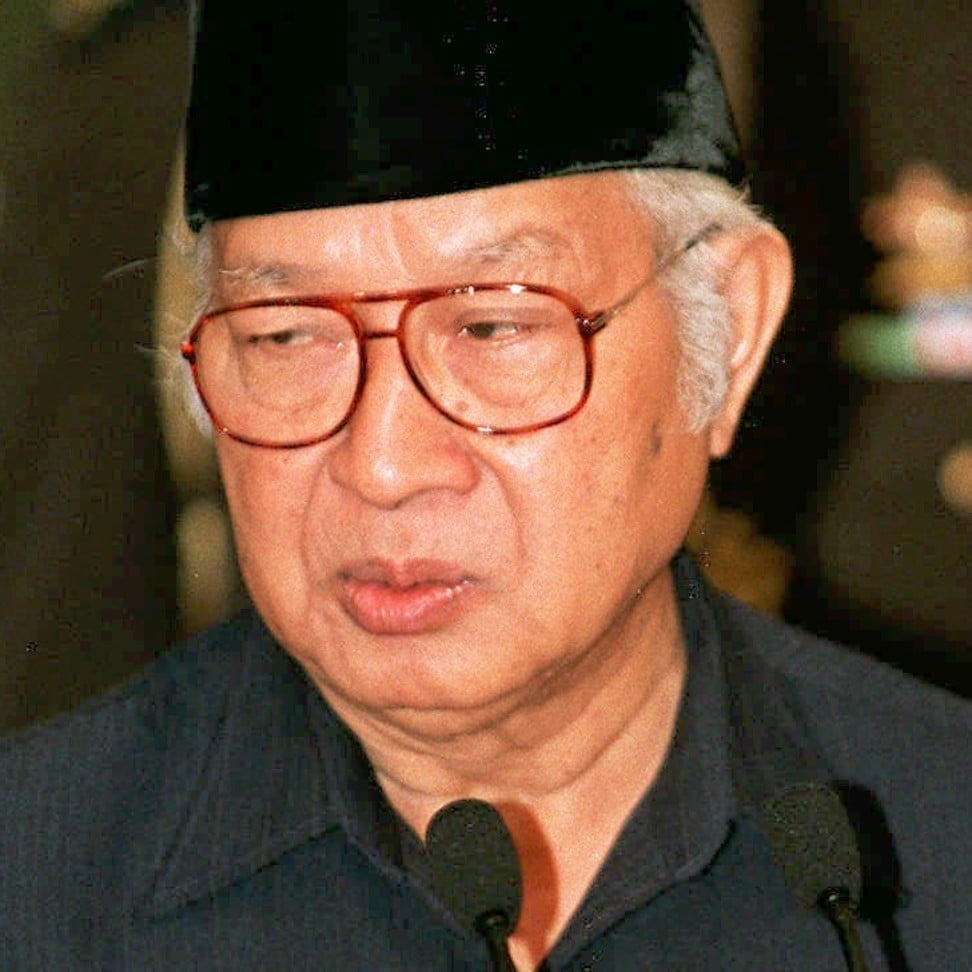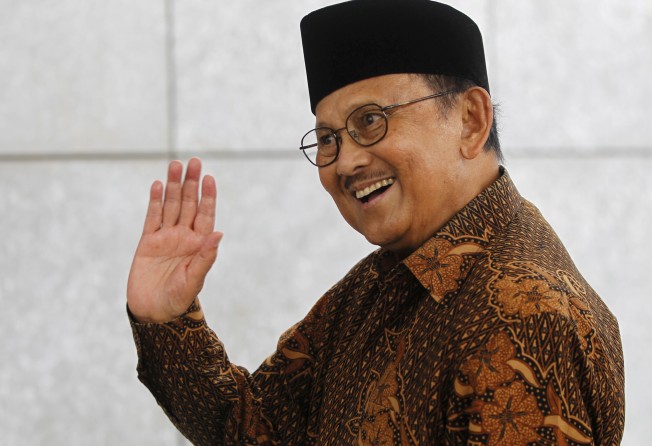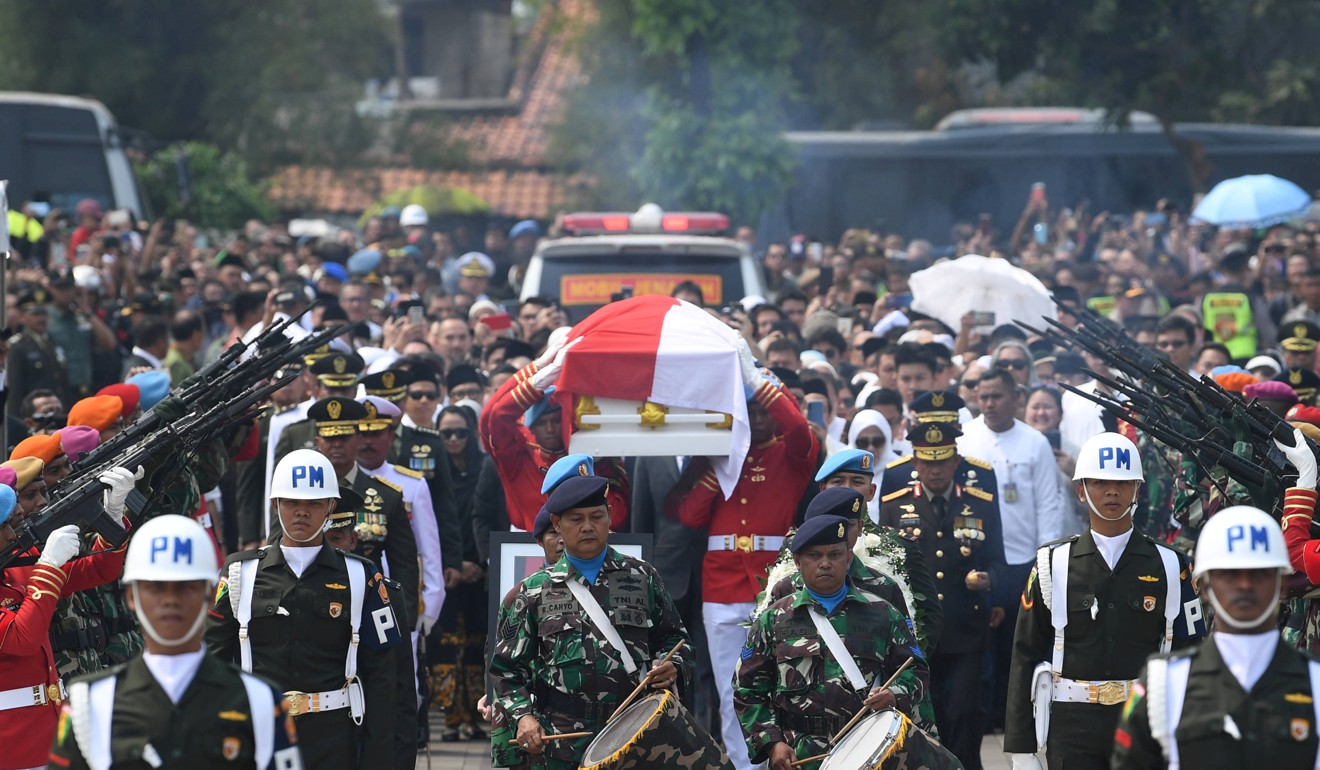
History has been kind to BJ Habibie, who transformed Indonesia in 17 months as president
- His time in power was a whirlwind and Habibie stunned his critics with an unprecedented political ‘big bang’ of reforms
- However, the so-called liberation of East Timor, although viewed positively by the West, was regarded domestically as his biggest failure

He was a quintessential product of Suharto’s “New Order” and, having served as a cabinet minister for two decades, was a much promoted, admired and protected protégé.
Nonetheless, from May 1998 for 17 intense months, as Indonesia was battered by the Asian financial crisis (AFC) and political turmoil, BJ Habibie blithely dismantled his mentor’s authoritarian legacy as the country’s president.
“Pak Habibie was not a politician. He was an engineer – a man of science,” said Dewi Fortuna Anwar, one of his key advisers.
“He designed and built things. He also built institutions. And as president at that time, he saw that it was his task was to get Indonesia out of what was a multidimensional crisis. To his mind, Indonesia, for too long, had depended on economics alone. Social and political developments had atrophied. This had to change.”
Born in 1936 on the eastern island of Sulawesi, Habibie would probably have lived a quiet and relatively obscure existence as a successful aeronautical engineer in his beloved Germany had Suharto – then a rising star in the military – not been sent to pacify Makassar (and the Andi Aziz Rebellion) in 1950.
The visiting general found a warm welcome in the Habibie homestead on Jalan Maricaya. The hospitality, combined with a shared Javanese connection, formed the basis of a deep, long-term family friendship. Later, whenever Suharto travelled through Germany in the 1970s, he often made a point of catching up with the young Habibie – by then an ambitious and talented engineering student.

After graduating, Habibie went on to work at the well-known German aeronautical manufacturers Messerschmidt-Bolkow-Blohm – subsequently part of Airbus. However, Suharto had not forgotten the young man and in 1974 Habibie was called back to Indonesia to oversee the republic’s industrialisation, modernising state-owned enterprises such as PT Pindad, the defence manufacturer, and PT PAL, the shipbuilder.
In doing so, he shaped his nation’s identity. For example, his role at ICMI – Ikatan Cendekiawan Muslim Indonesia, the Indonesian Association of Intellectuals – went a long way to battling obscurantism in Islamic discourse.
Habibie was not a politician. He was an engineer – a man of science
His rise was spectacular. In 1978 the diminutive Habibie joined the cabinet as minister for research and technology. Many have disparaged his achievements and criticised his over-spending – not without justification – but in his quest to create an Indonesian aeroplane manufacturer, IPTN (now PT Dirgantara), he also created a phalanx of engineers. Sadly, much of this extraordinary engineering capacity was lost during the Asian financial crisis as many left to work with Brazil’s Embraer and elsewhere.
Relations with the Suharto family never recovered from Habibie’s embrace of the reform agenda during his presidency. Indeed, the Suharto clan was conspicuous in its absence from the recent state funeral.

His 17-month presidency was a whirlwind. Habibie stunned his critics with an unprecedented political “big bang”: freeing political prisoners, relaxing press restrictions, addressing long-term ethnic Chinese grievances, setting up independent institutions (including an electoral commission), reconfiguring key constitutional bodies such as parliament as well as pushing for decentralisation, leading to the 2014 election of Joko Widodo as president.
External pressures, including a collapsing rupiah and outbreaks of violence across the archipelago, meant such reforms were almost inevitable.
The so-called liberation of East Timor, although viewed positively by the West, was regarded domestically as his biggest failure, especially by the military and security community for whom Indonesian sovereignty has long been inviolable.
The anger and frustration among the Jakarta elite – at the time and for many years after the end of Habibie’s presidency – should not be underestimated and his legacy was diminished as a result.
Nonetheless, by the time of his death some 20 years later it’s hard to imagine a leader more universally loved and well regarded. History has been kind to his political reforms and beyond that Habibie’s personality made him a uniquely millennial hero.
“He was warm. He was genuine. He didn’t care about image,” Dewi Fortuna Anwar said.
It was this emotional authenticity, vulnerability and ultimately his passionate devotion to his lovely wife Ainun – who passed away in 2010 – that anchored his contemporary reputation. Of course, having the heartthrob Reza Rahadian playing him on-screen did not harm Habibie’s reputation either.
He lived and died at the very centre of Indonesian public life and his story is proof there can be second and sometimes even third acts.